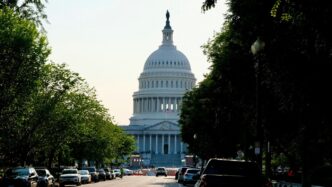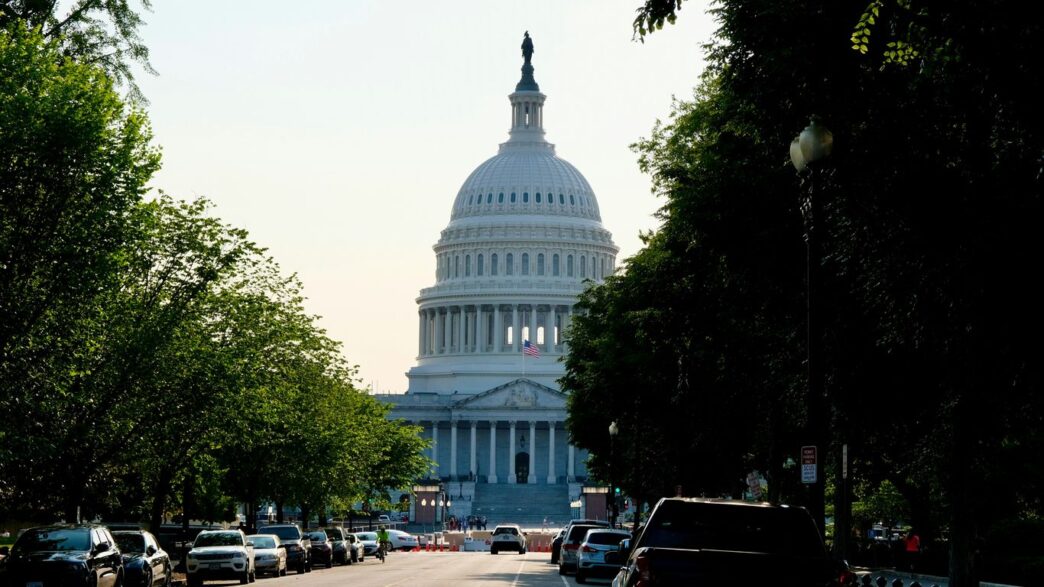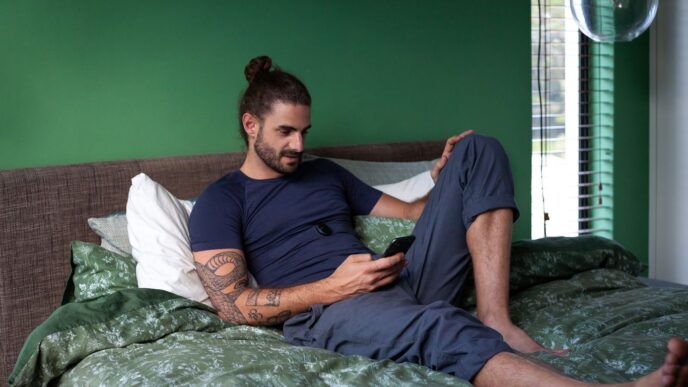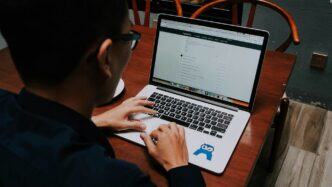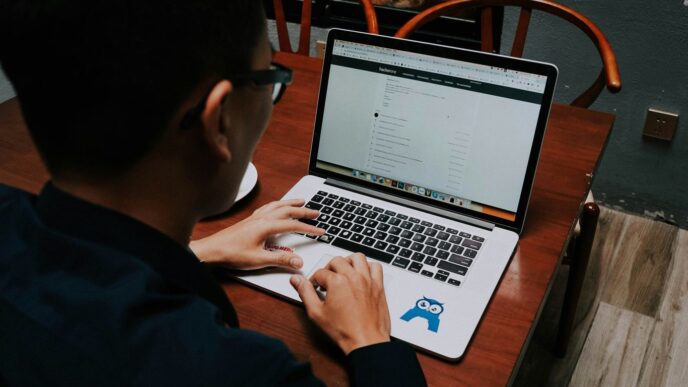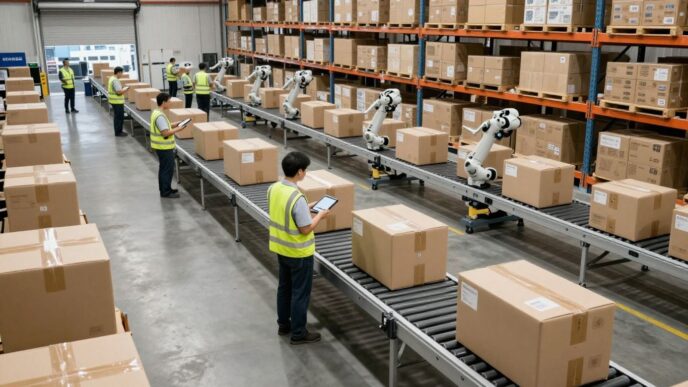So, the head honcho of TikTok, Shou Zi Chew, had to go in front of Congress recently. It was a pretty big deal, with lawmakers really digging into him about how the app handles our data and whether it’s a security risk. He tried to smooth things over, but it sounds like folks on the Hill weren’t exactly convinced. This whole tiktok hearing has everyone talking about what it all means for the app and its millions of users.
Key Takeaways
- Lawmakers grilled TikTok CEO Shou Zi Chew during a congressional hearing, focusing heavily on data security and potential ties to the Chinese government.
- Chew assured Congress that TikTok prioritizes user safety and denied being an agent of China, highlighting plans to store U.S. user data with Oracle.
- Concerns were raised about ByteDance accessing journalist data and the app’s role in spreading harmful content and influencing teen mental health.
- The possibility of a U.S. ban on TikTok was a major topic, with discussions on the arguments for and against such a move and its potential enforcement.
- TikTok has been making efforts to appear more transparent and secure, including investing in security measures and attempting to mobilize its user base to lobby lawmakers.
TikTok CEO Faces Congressional Scrutiny
CEO Shou Zi Chew’s Testimony Before Congress
So, TikTok’s CEO, Shou Zi Chew, recently found himself in the hot seat, facing a bunch of tough questions from lawmakers in Congress. This was a pretty big deal, his first time really testifying before them, and you could tell a lot was riding on it. He’s been doing a bit of a PR tour lately, meeting with folks and even putting out a video warning users that "some politicians" might take the app away. It’s a whole thing, trying to get people on his side.
Concerns Over Data Security and Chinese Influence
The main worry everyone keeps bringing up is data security. Basically, lawmakers are really concerned that the Chinese government could get its hands on data from American users. They’ve heard stories, like the one about ByteDance employees accessing data on journalists, and it just fuels the fire. Chew has been trying to reassure everyone, saying things like "ByteDance is not an agent of China or any other country." He’s also been talking up their plan to store U.S. user data on Oracle’s servers right here in America. But still, a lot of people aren’t convinced, especially with all the ongoing tension between the U.S. and China.
TikTok’s Role in Geopolitical Tensions
It’s pretty clear that TikTok has gotten caught up in the bigger picture of U.S.-China relations. This isn’t just about an app anymore; it’s become a symbol in a larger tech and trade battle. Lawmakers on both sides of the aisle seem to agree that they need to be tough on China, and TikTok is kind of in the middle of that. Some even brought up how a video showing a gun was posted with details about the hearing, which really didn’t help Chew’s case for security. It just makes you wonder how much control TikTok really has, or if it’s just a pawn in a much larger game.
Data Security and User Privacy Under the Microscope
Lawmakers really put TikTok CEO Shou Zi Chew on the spot during his congressional hearing, and honestly, it’s understandable why. The big question on everyone’s mind is: can our data really be safe when the app is owned by a company based in China? It’s a complicated issue, and Chew had a lot to answer for.
Protecting American User Data from Beijing
One of the main worries is whether the Chinese government could get its hands on the personal information of 150 million Americans using TikTok. Chew insisted that ByteDance, TikTok’s parent company, isn’t controlled by China and that TikTok has never shared U.S. user data with Beijing, nor would it ever. He pointed out that TikTok isn’t even available in China. To try and build trust, TikTok has been moving U.S. user data to servers managed by Oracle, an American tech giant. They’ve been deleting old data from non-Oracle servers, aiming to have it all done by the end of the year. Still, some reports found TikTok’s tracking tools on U.S. state websites, which makes people wonder how completely data is being separated.
Allegations of ByteDance Accessing Journalist Data
Things got pretty heated when it came up that ByteDance employees had reportedly accessed data belonging to journalists and people connected to them. The company admitted to firing four employees over this last summer. They said this was done to find out who was leaking information about the company. This incident really didn’t help Chew’s case, with one representative even playing a TikTok video that seemed to show a gun aimed at the committee, highlighting security concerns right there in the room. TikTok did take down that video and ban the account, but the damage to trust was already done.
TikTok’s Partnership with Oracle for Data Storage
To address the data security fears, TikTok has been working with Oracle. The plan is to store all U.S. user data on Oracle-controlled servers located in the United States, with backups in Singapore. This is part of a bigger initiative called Project Texas. Chew stated that this setup would give Oracle oversight and allow them to monitor data security. The idea is that this partnership would create a barrier, preventing unauthorized access to U.S. user data. However, some lawmakers remain skeptical, questioning if this is enough to truly keep American data out of reach from foreign governments.
Harmful Content and Algorithmic Impact
One of the big worries lawmakers brought up during the hearing was about the kind of stuff people see on TikTok, especially younger users. They showed videos that seemed to encourage self-harm and even suicide, which is pretty disturbing. It makes you wonder how these things get through the cracks.
Moderation Practices for Harmful Content
So, how does TikTok handle all this? The CEO, Shou Zi Chew, mentioned they have about 40,000 people working as moderators. Plus, they use algorithms to flag bad content. He also pointed out that what’s allowed on the app can depend on the laws of the country it’s operating in. It’s a tough balancing act, for sure. They claim to be working hard to keep dangerous material off the platform. But then you hear about those tracking pixels from ByteDance showing up on state websites, even where the app is banned. It makes you question how effective their moderation really is.
Comparison of Content on TikTok and Douyin
Something that came up a lot was the difference between TikTok and its Chinese version, Douyin. Lawmakers were asking why Douyin doesn’t seem to have the same controversial or risky content that pops up on TikTok. Chew’s explanation was that it’s all about following local laws. It’s a bit of a head-scratcher, though, why the same company would have such different content rules for different countries. It raises questions about what content is being prioritized and why.
Impact of Algorithms on Teen Mental Health
Beyond just outright harmful content, there’s the whole issue of the algorithm. These algorithms are designed to keep you hooked, showing you more of what you seem to like. But what happens when that leads teens down rabbit holes of unhealthy content or unrealistic expectations? It’s a real concern for mental health. The way the algorithm works can really shape a young person’s view of the world, and not always for the better. It’s a complex problem with no easy answers, and it’s something that needs a lot more attention, especially considering the sheer number of young people using the app daily. This is a big part of the reason for bipartisan concern in Congress.
The Threat of a Potential TikTok Ban
So, the big question on everyone’s mind is whether TikTok is actually going to get banned in the U.S. It’s a pretty wild thought, considering how many people use the app daily. Lawmakers have been grilling TikTok’s CEO, Shou Zi Chew, and let’s just say the vibe wasn’t exactly chill. They’re worried about a lot of things, mainly data security and how much influence China might have through the app. It feels like a really complicated situation, and honestly, nobody seems to have a clear answer on how a ban would even work.
Arguments for and Against a U.S. Ban
On one side, you’ve got lawmakers and intelligence folks pointing fingers, saying TikTok is a national security risk. They’re concerned that the Chinese government could get its hands on American user data or even use the platform to push certain narratives. Some even showed videos during the hearing that were pretty disturbing, raising questions about content moderation. It’s a serious concern, especially when you think about how many young people use the app. The idea that sensitive data could be accessed by a foreign government is a big red flag for many.
But then there’s the other side. A bunch of civil rights groups, like the ACLU, are pushing back against a ban. They argue it’s a form of censorship and that it sets a really bad precedent for free speech online. Plus, think about all the creators and small businesses that rely on TikTok for their livelihood. A ban would seriously mess with their income. It’s not just about the app; it’s about people’s jobs and their ability to express themselves.
Enforcement Challenges of a Nationwide Ban
If the U.S. did decide to ban TikTok, figuring out how to actually do it would be a whole other headache. It’s not like flipping a switch. Experts are talking about forcing app stores like Apple and Google to remove it, or even blocking internet access to the platform. There’s also the possibility of seizing domain names. It’s uncharted territory, and nobody’s really sure what the best or most effective way to enforce it would be. It’s a complex technical and legal puzzle.
Impact of a Ban on Competitors
It’s pretty clear that if TikTok were to disappear from the U.S. market, other social media giants would probably see a big boost. Companies like YouTube, Instagram, and Snap would likely pick up a lot of TikTok’s users and, more importantly, its advertising revenue. Analysts are already saying that a ban could mean a bigger slice of the advertising pie for these rivals. It’s a business angle that can’t be ignored in all of this. It’s interesting to see how these big tech companies might benefit from such a move, even if it’s not the main reason for considering a ban. The whole situation is a good reminder of how interconnected everything is in the digital world, and how actions taken against one platform can ripple outwards. It’s also worth noting that TikTok has been trying to address these concerns, for example, through a joint venture that would manage the app and adhere to regulations designed to safeguard American data and national security, as mentioned in discussions about TikTok’s operational changes.
TikTok’s Defense and Transparency Efforts
So, TikTok’s CEO, Shou Zi Chew, definitely had his work cut out for him during that congressional hearing. He’s been on a bit of a publicity tour lately, trying to get ahead of these tough questions. It seems like he’s been meeting with lawmakers and even put out a video warning users that "some politicians" might take the app away. He’s trying to rally the 150 million American users, asking them to share what they love about the platform. It’s a pretty bold move, trying to get the user base involved in the lobbying effort.
CEO’s Assurances on National Security
Chew has been pretty clear, saying things like, "ByteDance is not an agent of China or any other country." He’s trying to convince everyone that TikTok isn’t a national security risk. He’s emphasized that he’s a Singaporean, based in Singapore, and not directly controlled by ByteDance in China. He’s also pointed out that a good chunk of ByteDance is owned by global investors, not just Chinese entities. It’s all about trying to build trust through actions, as he put it, rather than focusing too much on the ownership structure itself.
Company’s Investments in Security Measures
TikTok claims they’ve been putting their money where their mouth is when it comes to security. They’ve said they’ve spent over $1.5 billion on security efforts. A big part of this is their plan to keep American user data safe by storing it on Oracle-owned servers right here in the U.S. They’ve also started the process of deleting U.S. user data that was previously stored elsewhere. On top of that, they’ve recently put in place a screen time limit of one hour for users under 18, which they say is part of addressing concerns about teen mental health.
Efforts to Mobilize User Base and Lobby Lawmakers
It’s clear TikTok is trying to fight back on multiple fronts. Beyond the public statements and investments, they’ve been actively trying to influence the conversation. Chew himself has been meeting with lawmakers, and the company has encouraged users to speak up about what they like about the app. They’re hoping that by showing the app’s value and demonstrating their commitment to security, they can sway opinions. It’s a strategy that involves both direct engagement with officials and mobilizing their massive user community.
Ownership Structure and Geopolitical Concerns
This whole situation with TikTok really boils down to who’s in charge and where the company’s loyalties lie. It’s not just about an app; it’s tangled up in bigger international politics between the U.S. and China. Lawmakers are really focused on the fact that TikTok’s parent company, ByteDance, is based in China. That connection raises a lot of flags about whether the Chinese government could get its hands on American user data or influence what people see on the platform.
ByteDance’s Ownership and Chinese Government Ties
So, ByteDance is the company that owns TikTok, and it’s a Chinese company. This is where a lot of the worry starts. Even though TikTok’s CEO, Shou Zi Chew, says he’s based in Singapore and that ByteDance isn’t controlled by China, people in Washington aren’t easily convinced. They point to the fact that many Chinese tech companies have ties to the government, and there’s a law in China that could potentially force companies to cooperate with intelligence agencies. It’s this uncertainty that fuels a lot of the distrust. Chew himself was an early investor in ByteDance, which adds another layer to his connection to the company’s origins.
TikTok’s Stance on Ownership vs. Actions
TikTok’s defense often centers on the idea that actions speak louder than ownership. Chew has repeatedly stated that trust is built on what the company does, not just where it’s headquartered. They’ve put a lot of effort into Project Texas, a plan to store U.S. user data on servers managed by Oracle, an American company. The idea is to create a firewall between U.S. data and ByteDance in China. However, some lawmakers are skeptical, questioning if this setup is truly enough to prevent data access or influence from Beijing. They’ve even shown videos during hearings that seemed to indicate security lapses, like one showing a gun with the date of the hearing caption, asking how TikTok could protect national data if it couldn’t protect people in the room. It’s a tough sell when trust is already low.
International Bans on Government Devices
This concern about data security and foreign influence isn’t just a U.S. issue. Lots of countries are starting to get nervous. We’ve seen several governments, including Canada and the European Commission, ban TikTok from employees’ government-issued devices. This is a pretty clear signal that governments worldwide are taking the potential risks seriously. It’s a way to limit exposure, especially for people who handle sensitive information. While TikTok argues that these bans are often based on broad assumptions rather than specific evidence of misuse, the trend shows a growing global unease about apps with ties to countries perceived as geopolitical rivals. This widespread caution makes it harder for TikTok to operate freely across borders, and it highlights the complex challenges of global tech regulation.
A Long Road Ahead for TikTok
So, the big hearing is over, and TikTok’s CEO Shou Zi Chew faced a lot of tough questions from lawmakers. He tried to reassure everyone that user data is safe and that the app isn’t a national security risk. But honestly, it didn’t seem like many politicians were convinced. They brought up past issues, like employees accessing journalist data, and showed videos that were pretty concerning. Even with plans to store data in the US with Oracle, the lawmakers’ skepticism was clear. It feels like this whole situation is far from settled, and whether TikTok can truly win over Washington remains a big question mark. We’ll have to wait and see what happens next.
Frequently Asked Questions
Why is the TikTok CEO talking to Congress?
The CEO of TikTok, Shou Zi Chew, recently spoke to members of the U.S. Congress. Lawmakers had many questions and concerns about how TikTok handles user data, especially data from people in America. They also wanted to know about the app’s safety features and its connection to China.
What are the main worries about TikTok?
The biggest concerns are about data security and national security. People worry that the Chinese government could get access to information about TikTok users in the U.S. There are also worries about the kind of content on the app and how its popular algorithm might affect young people’s mental health.
What is TikTok doing to protect user data?
TikTok is working on a plan called Project Texas. This involves storing all U.S. user data on servers run by Oracle, a U.S. company. They are also deleting old U.S. user data from other servers. The company says it’s investing a lot of money in security measures to keep data safe.
Could TikTok be banned in the U.S.?
There has been talk about banning TikTok in the U.S. Lawmakers are considering this option if concerns about data security and national security are not fully addressed. However, a ban would be complicated to carry out and could face challenges.
Does TikTok share data with the Chinese government?
TikTok’s CEO has firmly stated that the company has never shared U.S. user data with the Chinese government and would not do so. He also mentioned that TikTok is not available in China. However, some lawmakers remain skeptical due to TikTok’s ownership by ByteDance, a company based in China.
What about harmful content and algorithms on TikTok?
Lawmakers questioned TikTok about how it handles harmful content, like videos that encourage self-harm. They also asked why the app seems to have more dangerous content than its Chinese version, Douyin. TikTok says it has thousands of moderators and uses algorithms to flag bad content, and that it’s working to improve safety, especially for younger users.

